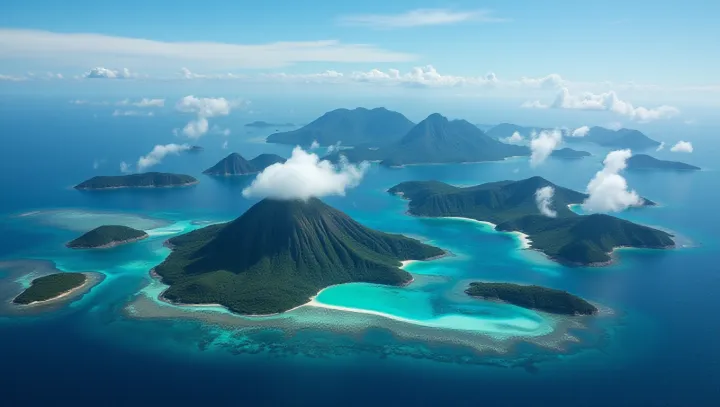Indonesia: World's Largest Archipelago
Indonesia, renowned as the largest archipelago nation globally, maintains its extraordinary maritime standing with approximately 17,000 islands scattered over Southeast Asia and Oceania. This colossal chain of islands forms a unique geographical tapestry, fostering diverse ecosystems and vibrant cultures. Strategically situated between the Indian and Pacific Oceans, Indonesia holds a significant geopolitical stance. Its waterways are crucial maritime routes, facilitating global trade and enhancing its economic influence in the region. The archipelago's rich biodiversity and cultural heritage continue to attract international focus and tourism. Experts highlight the importance of preserving Indonesia's ecological and cultural diversity amidst modern challenges. 'Indonesia's array of islands offers unmatched ecological value and cultural insight,' remarks Professor Arif Samudra, an expert in Southeast Asian studies. 'Conserving this diversity is vital for maintaining global ecological balance and cultural heritage.' Indonesia's prominence as the largest archipelago underscores both opportunities and responsibilities. The nation's commitment to sustainable development and protection of its marine territories stands as a testament to its global leadership in environmental stewardship. As the world converges on addressing climate change, Indonesia's efforts underscore the critical role of archipelagic nations in global sustainability.

Indonesia, renowned as the largest archipelago nation globally, maintains its extraordinary maritime standing with approximately 17,000 islands scattered over Southeast Asia and Oceania. This colossal chain of islands forms a unique geographical tapestry, fostering diverse ecosystems and vibrant cultures. Strategically situated between the Indian and Pacific Oceans, Indonesia holds a significant geopolitical stance.
Its waterways are crucial maritime routes, facilitating global trade and enhancing its economic influence in the region. The archipelago's rich biodiversity and cultural heritage continue to attract international focus and tourism. Experts highlight the importance of preserving Indonesia's ecological and cultural diversity amidst modern challenges.
'Indonesia's array of islands offers unmatched ecological value and cultural insight,' remarks Professor Arif Samudra, an expert in Southeast Asian studies. 'Conserving this diversity is vital for maintaining global ecological balance and cultural heritage.' Indonesia's prominence as the largest archipelago underscores both opportunities and responsibilities. The nation's commitment to sustainable development and protection of its marine territories stands as a testament to its global leadership in environmental stewardship.
As the world converges on addressing climate change, Indonesia's efforts underscore the critical role of archipelagic nations in global sustainability.







